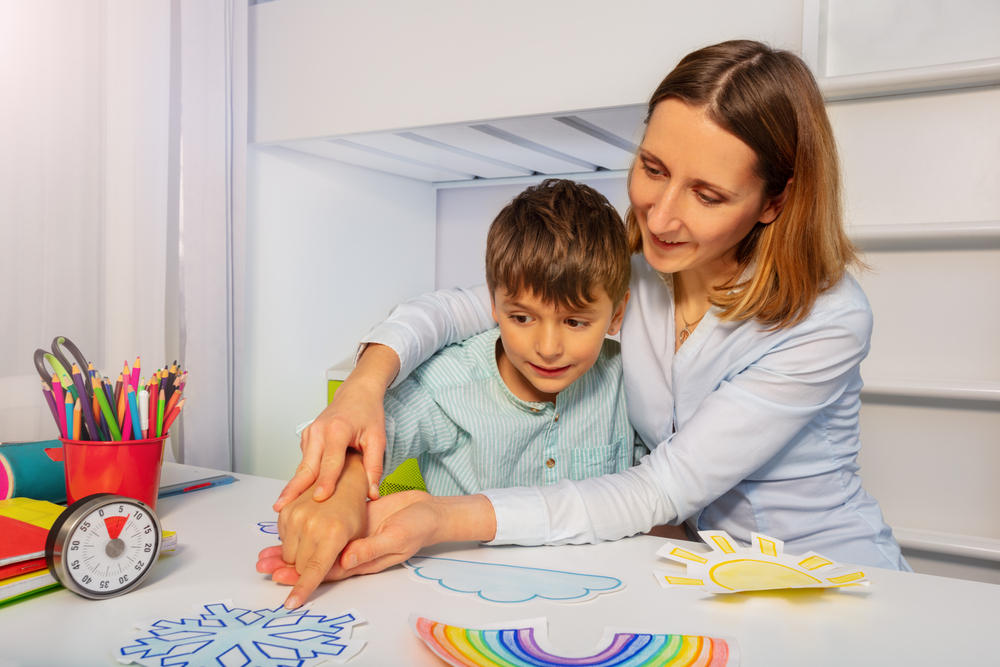
Obsessive-Compulsive Disorder (OCD) is a mental health condition that affects individuals of all ages, including children. It is characterized by persistent, intrusive thoughts (obsessions) and repetitive behaviors or mental acts (compulsions) that an individual feels driven to perform to alleviate the anxiety caused by the obsessions.
In children, OCD can manifest in various ways, and it is essential to understand the disorder to provide the necessary support and intervention. OCD is not a phase or a quirk; it is a legitimate mental health condition that requires professional treatment and support from loved ones.
Recognizing the Signs and Symptoms of OCD in Children
Identifying the signs and symptoms of OCD in children can be challenging, as some behaviors may be mistaken for normal childhood quirks or phases. However, it is crucial to be aware of the following indicators:
- Persistent and Intrusive Thoughts: Children with OCD may experience persistent, unwanted thoughts or images that cause significant distress and anxiety.
- Repetitive Behaviors: They may engage in repetitive behaviors or rituals, such as excessive hand-washing, checking, counting, or arranging objects in a specific order.
- Avoidance Behaviors: Children with OCD may avoid certain situations, places, or activities that trigger their obsessions or compulsions.
- Difficulty Concentrating: The constant intrusion of obsessive thoughts and the need to perform compulsions can make it challenging for children to concentrate on tasks or activities.
- Excessive Reassurance-Seeking: They may frequently seek reassurance from parents, teachers, or others regarding their obsessions or compulsions.
- Distress and Interference with Daily Life: OCD can cause significant distress and interfere with a child's daily functioning, social interactions, and academic performance.
It is essential to note that the presence of some of these signs does not necessarily indicate OCD. A comprehensive evaluation by a psychiatrist or psychologist is necessary for an accurate diagnosis.
How to Support Your Child with OCD
Supporting a child with OCD requires patience, understanding, and a collaborative approach. Here are some strategies to consider:
- Educate Yourself: Learn as much as you can about OCD, its symptoms, and effective treatment methods. Understanding the disorder will help you provide better support and make informed decisions.
- Seek Professional Help: Consult with a mental health professional, such as a psychiatrist or therapist, who specializes in treating OCD in children. They can provide evidence-based treatments, such as Exposure Response Prevention (ERP) therapy and medication, if necessary."
- Create a Supportive Environment: Provide a nurturing and non-judgmental environment for your child. Avoid criticizing or minimizing their obsessions and compulsions, as this can exacerbate their distress.
- Involve Your Child: Involve your child in the treatment process and decision-making whenever possible. Encourage them to express their thoughts and feelings, and listen without judgment.
- Establish Routines: Develop structured routines and schedules to help your child manage their OCD symptoms. Consistency and predictability can reduce anxiety and provide a sense of control.
- Be Patient and Celebrate Progress: OCD treatment can be a long and challenging process. Celebrate small victories and progress along the way, and remain patient and supportive throughout the journey.
The Role of Psychiatrists in Treating OCD
While OCD can be effectively treated with a combination of therapy and medication, the involvement of a psychiatrist is crucial in managing the disorder. A psychiatrist will conduct a thorough evaluation to diagnose OCD and rule out other potential underlying conditions. This assessment may involve interviews, psychological tests, and physical examinations.
If deemed necessary, a psychiatrist can prescribe medications to help alleviate OCD symptoms. The psychiatrist will monitor the effectiveness and potential side effects of the prescribed medications, making adjustments as needed to optimize the treatment. A combination of medication and evidence-based therapy is often recommended for effective treatment.
Regular follow-up appointments with the psychiatrist are essential to monitor progress, address any concerns, and make necessary adjustments to the treatment plan.
Navigating OCD with the Help of Casey Lester, MD
Recognizing and supporting a child with Obsessive-Compulsive Disorder (OCD) requires a compassionate and proactive approach. By understanding the signs and symptoms, seeking professional help, and providing a supportive environment, you can play a crucial role in your child's journey toward managing their OCD.
If you suspect your child may be struggling with OCD, don't hesitate to seek professional help. Contact Casey Lester, MD, specializing in OCD treatment for children to schedule an evaluation and explore the best treatment options. Visit our offices in Menlo Park or Palo Alto, California. Click here to book an appointment today.





